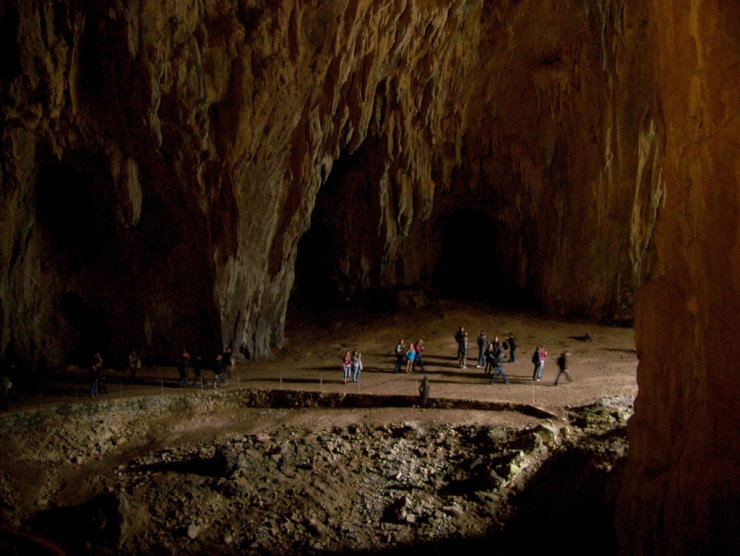If you've ever wondered what the Grand Canyon would look like underground, a visit to the Škocjan Caves may be in order. The series of cavernous chambers in Slovenia is on the UNESCO World Heritage List and receives 100,000 visitors a year. Its deep chasms and soaring walls have led to the place being called the "underground Grand Canyon."
Believed to be among the world's largest underground canyons, the location is like a tremendous bat cave (more on that in a moment).Although the giant subsurface wonder is nowhere near the size of the actual Grand Canyon, the cathedral-like spaces are still something to behold. "You'll realize that you could fit a fat 45-story skyscraper in this subterranean world," writes travel blogger Francis Tapon.
The Reka River rushes through the bottom of the limestone chasm and can be viewed from a footbridge, nearly 150 feet high. Lonely Planet says it is "surely the highlight of the trip."
Stalagmites and stalactites fill the cave in the dry area called Great Hall. Some are so big they've been named the Giants and the Organ.Then there are the signs of life: 250 varieties of plants and 15 different types of bats, according to Lonely Planet. Also worth noting is the incredibly creepy fish that have never seen the light of day. The proteus is a bizarre blind sea creature dubbed the "human fish" due to its limbs and odd color.
Along with the flora and fauna, humans have had a presence in the underground lair for some 10,000 years. Archeological digs have uncovered finds from a settlement that dates from the Middle Stone Age to the Iron Age. The prehistoric site is on view in the area called Tominč Cave.




